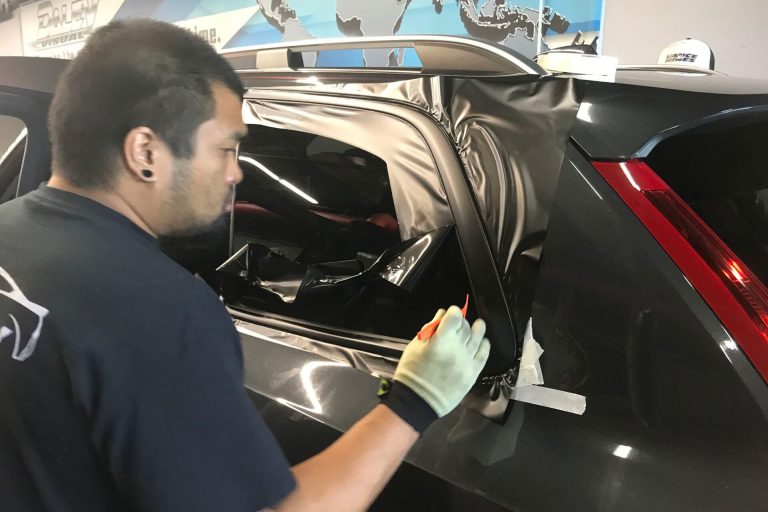What Happens When You Put Diesel in a Gas Engine?
Ever had that sinking feeling when you realize you’ve just pumped diesel into your gasoline-powered car? It’s a scenario more common than you might think and one that can lead to a costly headache. While your car might not be thrilled about this fuel faux pas, it’s not quite as disastrous as putting gas in a diesel engine.
But what exactly happens when diesel meets a gas engine? Why is it so detrimental to mix up the fuels? This guide is here to find these burning questions. We’ll see the consequences of such a mix-up and why it’s best to keep diesel and gas strictly in their respective engines.
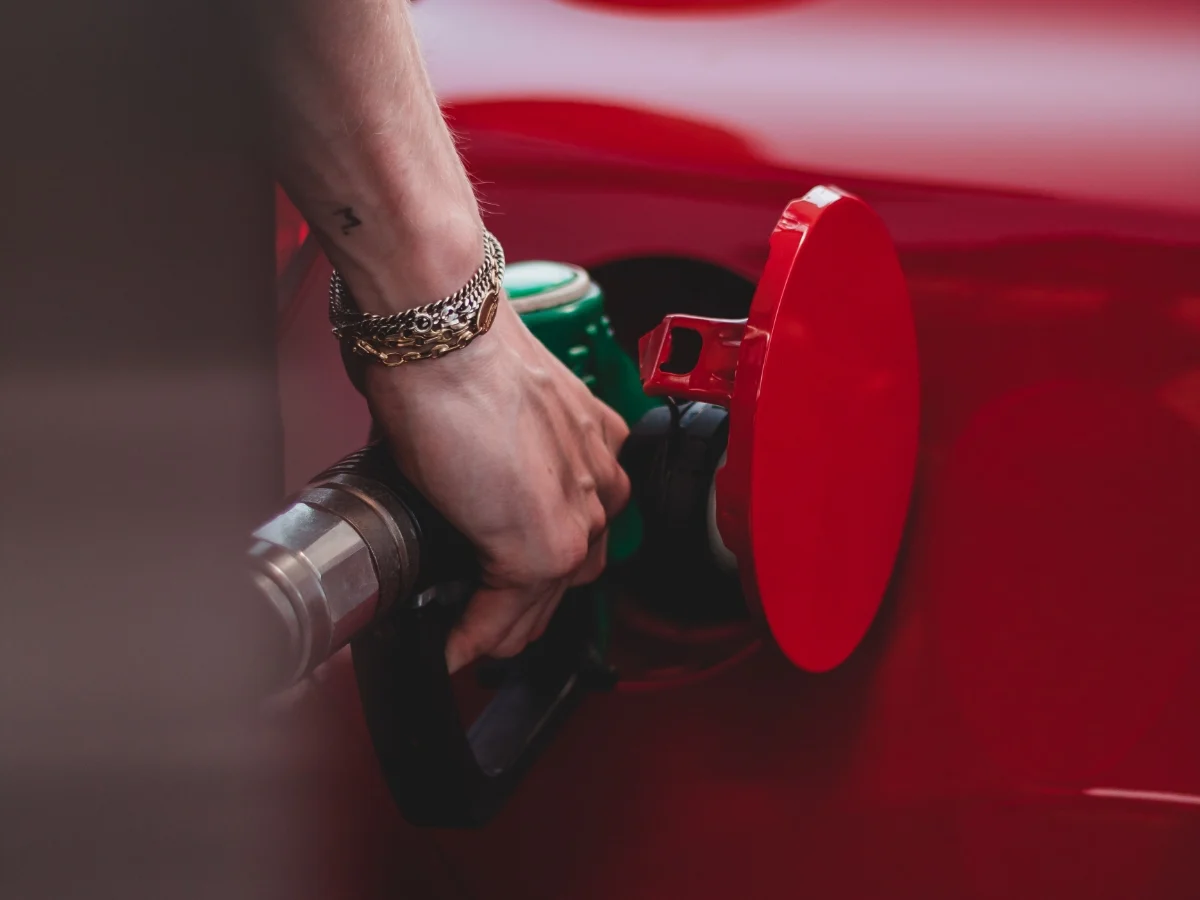
What Happens When You Put Diesel in a Gas Engine?
Putting diesel fuel into a gasoline engine can cause a range of issues due to the fundamental differences between these two types of fuel and how they’re designed to burn within an engine. Here’s what typically happens:
-
Difficulty Starting the Engine: Diesel fuel has a higher flash point than gasoline, meaning it requires higher temperatures to ignite. If you try to start a gasoline engine that’s been filled with diesel, it might not start at all because the spark plugs won’t be able to ignite the diesel fuel effectively.
-
Misfiring and Running Poorly: If the engine does start, it’s likely to run very poorly. You might notice misfiring, a significant reduction in power, and an uneven or rough idle. This is because diesel doesn’t vaporize as easily as gasoline, and the engine’s fuel injectors and spark plugs aren’t designed to ignite and burn diesel fuel efficiently.
-
Damage to the Fuel System: Diesel is more oily and viscous than gasoline. In a gasoline engine, diesel can clog the fuel injectors and fuel filter. It may also not pass through the fuel system as easily as gasoline, leading to reduced fuel pressure and potential damage to the fuel pump.
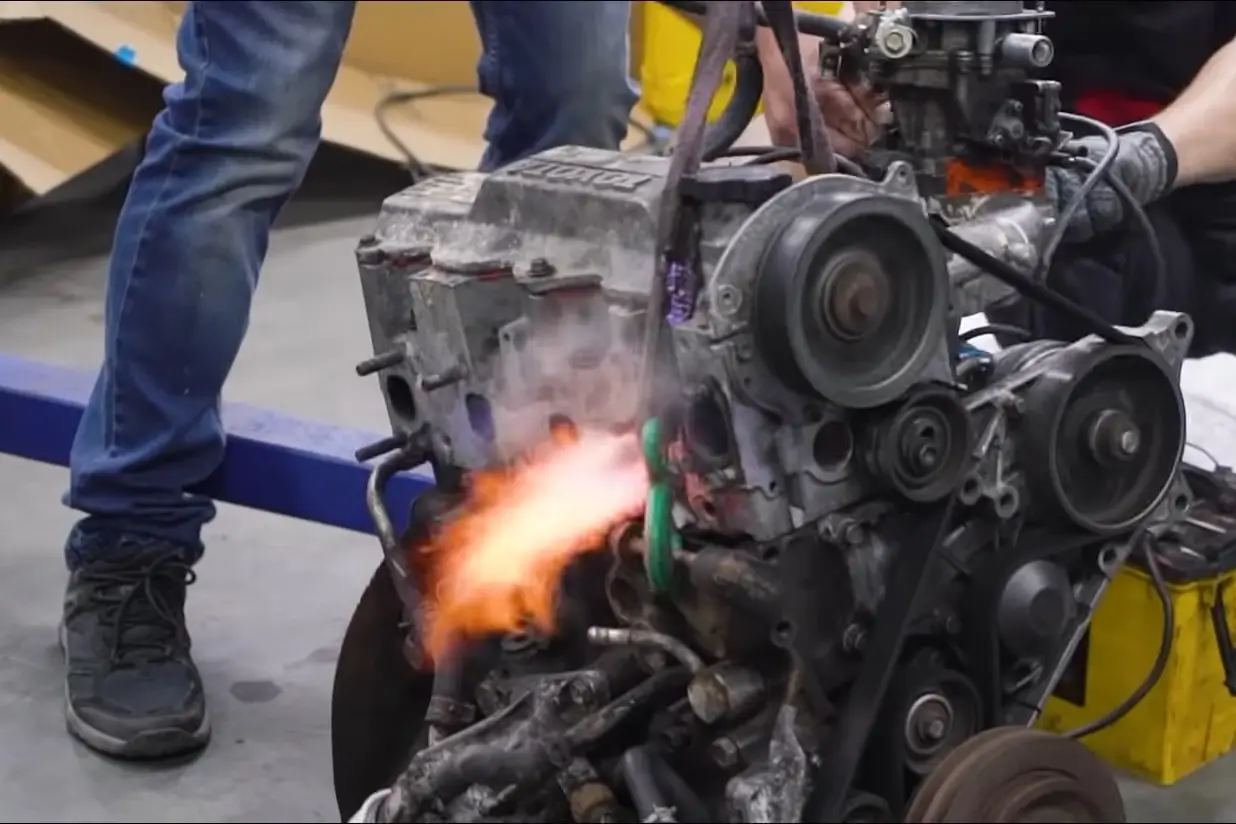
-
Potential for Long-Term Damage: Over time, running diesel in a gasoline engine can lead to significant damage, including to the catalytic converter, which is an essential part of the vehicle’s exhaust system. The catalytic converter can become clogged or damaged due to the improper combustion of diesel, leading to expensive repairs.
-
Engine Stalling: Eventually, the engine may stall completely. At this point, the diesel fuel will need to be completely drained from the fuel system, and parts of the system (such as fuel filters, injectors, and possibly the fuel pump) might need to be cleaned or replaced to get the engine running properly again.
How to Identify if You’ve Put Diesel in Your Gas Car?
Identifying whether you’ve accidentally put diesel in your gasoline car involves a few clear signs and steps. If you suspect this has happened, here are key indicators to confirm your suspicion:
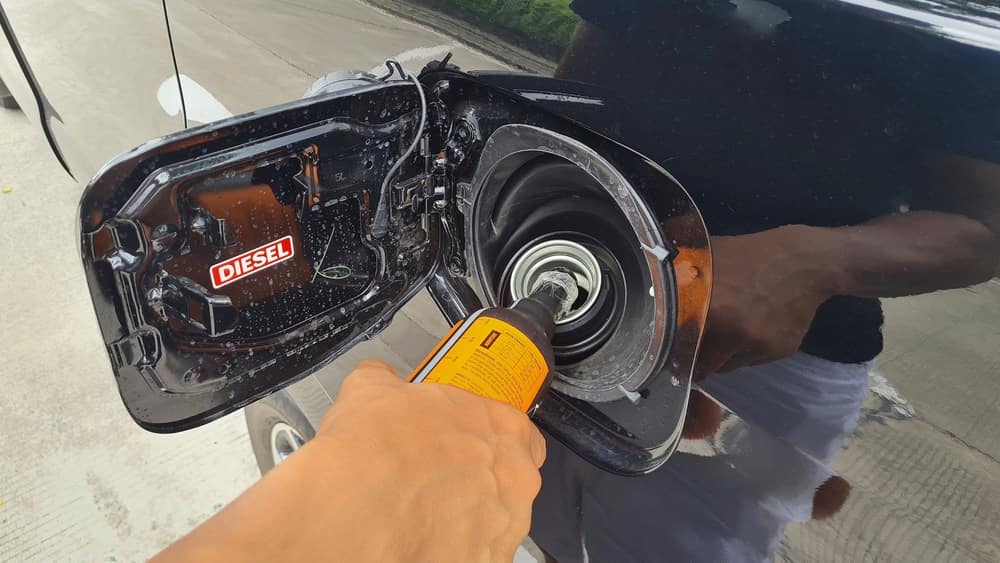
-
Fuel Nozzle Size Difference: First, check if you’ve noticed any difference in the fuel nozzle size at the pump. Diesel fuel nozzles are typically larger than those for gasoline. If you managed to fit a diesel nozzle into your car’s filler neck (which is less likely but possible, especially with older vehicles), this could be your first hint of the mistake.
-
Engine Performance Issues: After filling up, if your car starts experiencing performance issues such as difficulty starting, misfiring, a noticeable lack of power, or an unusual amount of smoke from the exhaust, these are strong indicators that the wrong fuel type may have been used. Diesel in a gasoline engine significantly affects combustion and can lead to these symptoms.
-
Unusual Exhaust Smoke: Diesel fuel in a gasoline engine tends to produce a lot of thick, white or gray smoke from the exhaust. This is because diesel doesn’t burn as cleanly or completely as gasoline in an engine not designed for it.
-
Check the Receipt: Sometimes, the simplest way to confirm if you’ve accidentally filled your tank with diesel is to check the fuel receipt. It will clearly state what type of fuel you’ve purchased.
-
Distinctive Smell: Diesel has a much stronger and oilier smell than gasoline. If you notice a different, more pungent odor than usual, either while filling up or from the exhaust, it could indicate diesel contamination.
-
Engine Stalls or Doesn’t Start: If the engine stalls shortly after starting or doesn’t start at all following a refuel, this is a strong indicator you may have used the wrong fuel. Diesel fuel’s higher ignition temperature means it won’t properly ignite in a gasoline engine, leading to stalling or starting issues.
What to Do if You Put Diesel in a Gas Car?
If you’ve accidentally put diesel in a gasoline car, acting quickly can minimize the damage. Here’s what you should do:
-
Do Not Start the Car: If you realize the mistake before starting the car, do not turn on the ignition. Starting the car will circulate the diesel through the fuel system and can cause more extensive damage.
-
If the Car is Running, Stop Safely: If you started the car and noticed the mistake (perhaps due to poor performance or smoke), stop the vehicle safely as soon as possible and turn off the engine.
-
Contact Roadside Assistance: The safest option is to call for professional help. Roadside assistance or a towing service can transport your car to a repair facility without risking further damage by driving it.
-
Have the Fuel Tank Drained: The car’s fuel system will need to be drained completely. This process usually involves removing the diesel from the fuel tank, fuel lines, fuel rail, and cleaning or replacing the fuel filter. A professional service center or mechanic can handle this task efficiently.
-
Inspect and Clean the Fuel System: After draining the diesel, the mechanic should inspect the fuel system components, such as the fuel pump and injectors, for any signs of damage. Depending on the car’s response to the diesel, some parts might need to be cleaned or replaced.
-
Refill with Gasoline: Once the system is cleaned and any necessary repairs are made, refill your car with the correct type of gasoline.
-
Use Fuel Additives (Optional): After resolving the issue, using a fuel additive can help clean any remaining deposits. However, consult with the mechanic first to ensure it’s recommended for your specific situation.
-
Monitor the Car’s Performance: After the incident, keep an eye on your car’s performance. Any unusual behavior, like rough idling or difficulty starting, should be checked by a professional to prevent further damage.
How Much Would It Cost To Fix Misfueling Issues?
Addressing diesel contamination in a gas engine isn’t a light affair; it could see you shelling out substantial amounts. The scope of damage, diagnostic services, and professional labor charges all contribute to the total.
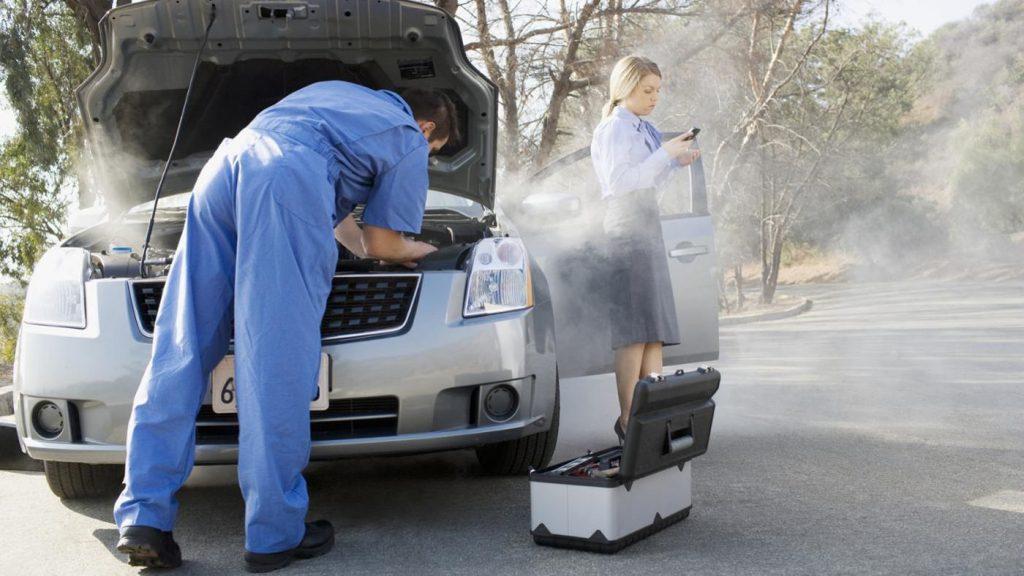
Often, the first step involves inspecting your fuel system. Diagnostic services typically fall between $100 and $200. Subsequent to the diagnosis, a professional drain and cleaning of the fuel tank is generally advisable. Depending on the rates of your chosen mechanic, anticipate spending about $500 to $1,000 for this service.
However, if diesel has circulated through your engine, the impact and cost escalate significantly. Replacing damaged components like fuel pumps, filters, and injectors involves heavier expenses, ranging from $2,000 to $5,000.
In extreme cases, your car’s entire engine might incur irreparable damage. Instances like these, especially with high-end models, could lead to costs nearing or exceeding the vehicle’s value itself. A new engine tends to cost between $1,000 and $9,000, excluding labor, making it a potentially high-ticket repair.
Frequently Asked Questions
How can I tell if diesel has contaminated my gas engine?
Symptoms like difficulty in starting your car, excessive black smoke, and reduced engine performance can indicate diesel contamination in your gas engine.
How can I prevent misfuelling with diesel in a gas car?
Preventive measures include staying alert at the gas station, acquainting oneself with the car’s fuel requirements, and considering devices like fuel caps that prevent diesel from accidentally being poured into your gasoline car.
What happens if I regularly use diesel in a gas engine?
Long-term and systematic misuse of diesel in a gas engine can lead to engine damage, fuel system deterioration, and catalyst degradation, emphasizing the importance of correct fuel usage.
Is diesel worth it over gasoline?
Diesel engines are typically more fuel-efficient compared to gas engines because diesel is more energy-dense. It’s not uncommon for a diesel-powered car to achieve 50 mpg or higher.
Will a little diesel harm a gas engine?
If only a few gallons of diesel are added to a half-full gas tank, the engine will likely continue to run, although performance may be affected. Considerable amounts of diesel, however, can cause the engine to stop once the existing gasoline is depleted.
How much diesel is enough to ruin a gas engine?
Mixing 2% diesel fuel into gasoline will lower the overall octane rating by 1 point. 10% diesel contamination lowers the octane by 5 points, which can create problems in most engines.
Can diesel permanently damage a gas engine?
While diesel can hinder a gasoline car’s performance, there isn’t typically long-term damage as long as the issue is swiftly addressed and diesel is no longer used as fuel.

Hi! I’m Larry Gibbs, studying mechanical engineering with a focus on cars. I really love Ferraris and write blog posts about the latest car stuff. When not studying or blogging, I’m usually on a road trip exploring new places. I also enjoy playing football and watching movies. Life’s an adventure, and I’m all about enjoying the ride!



